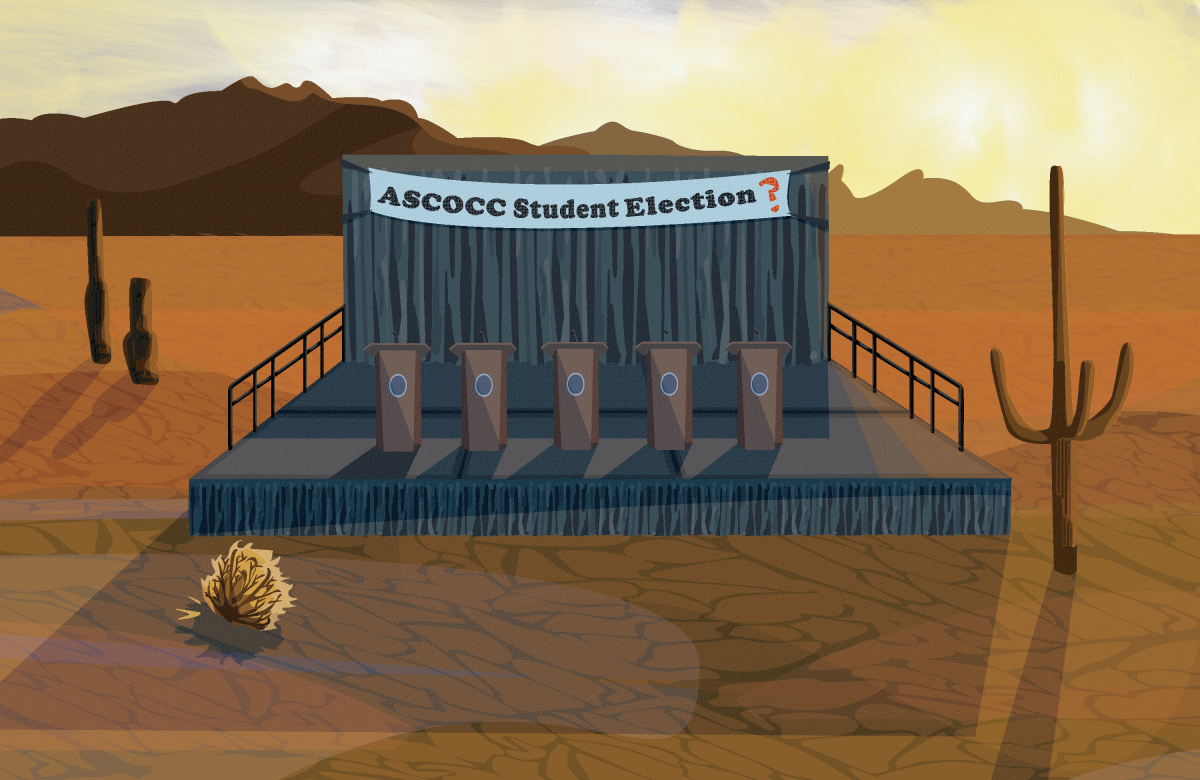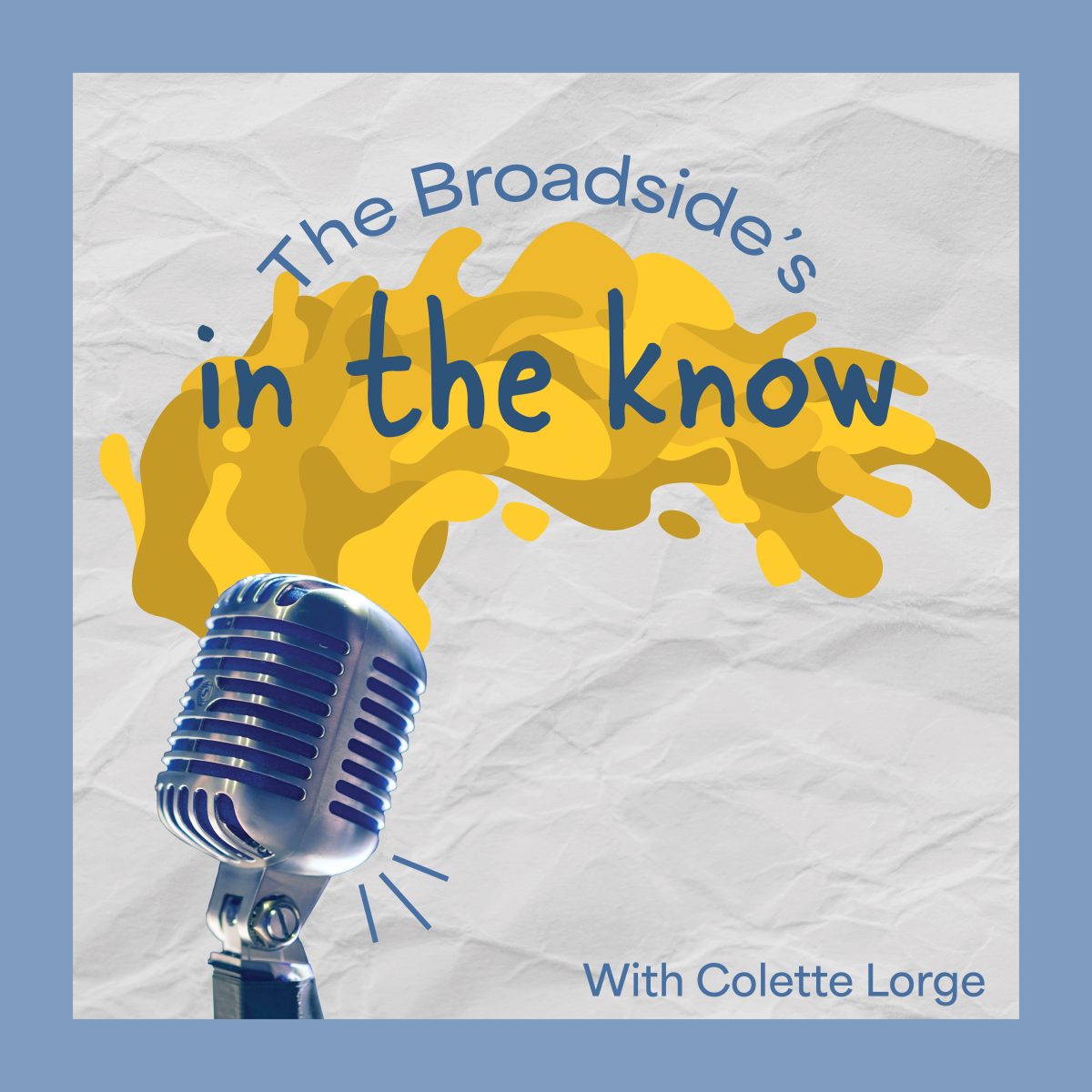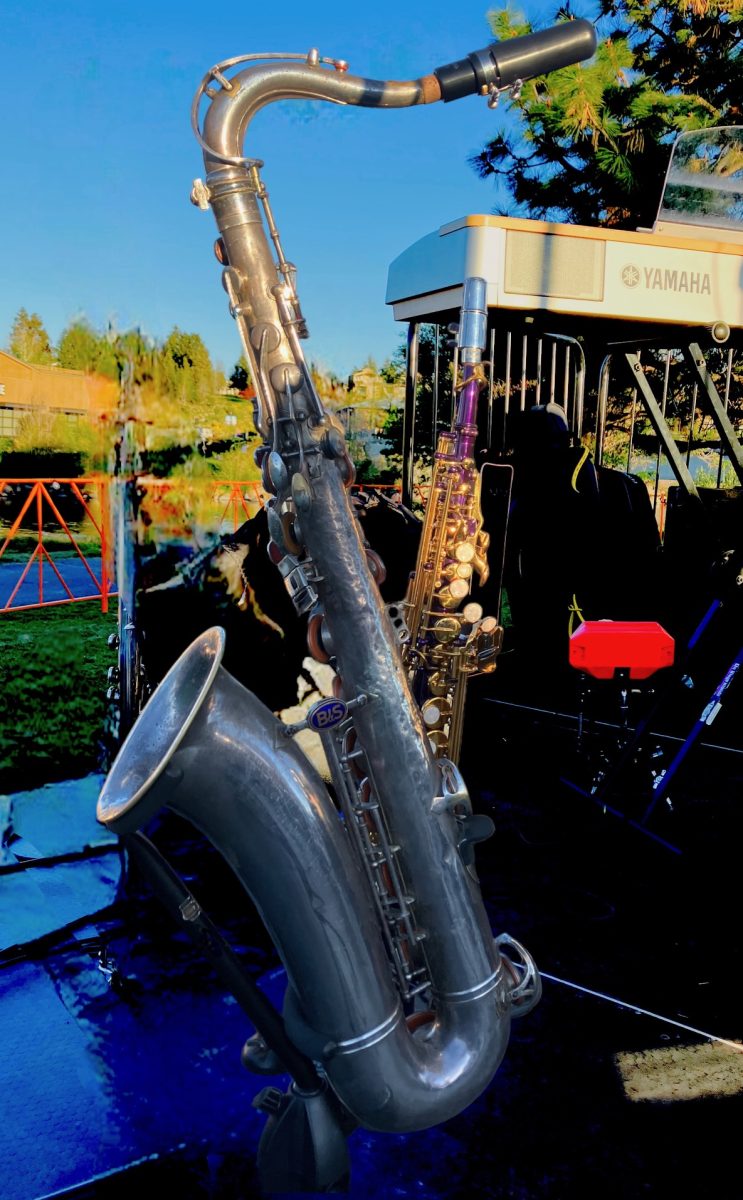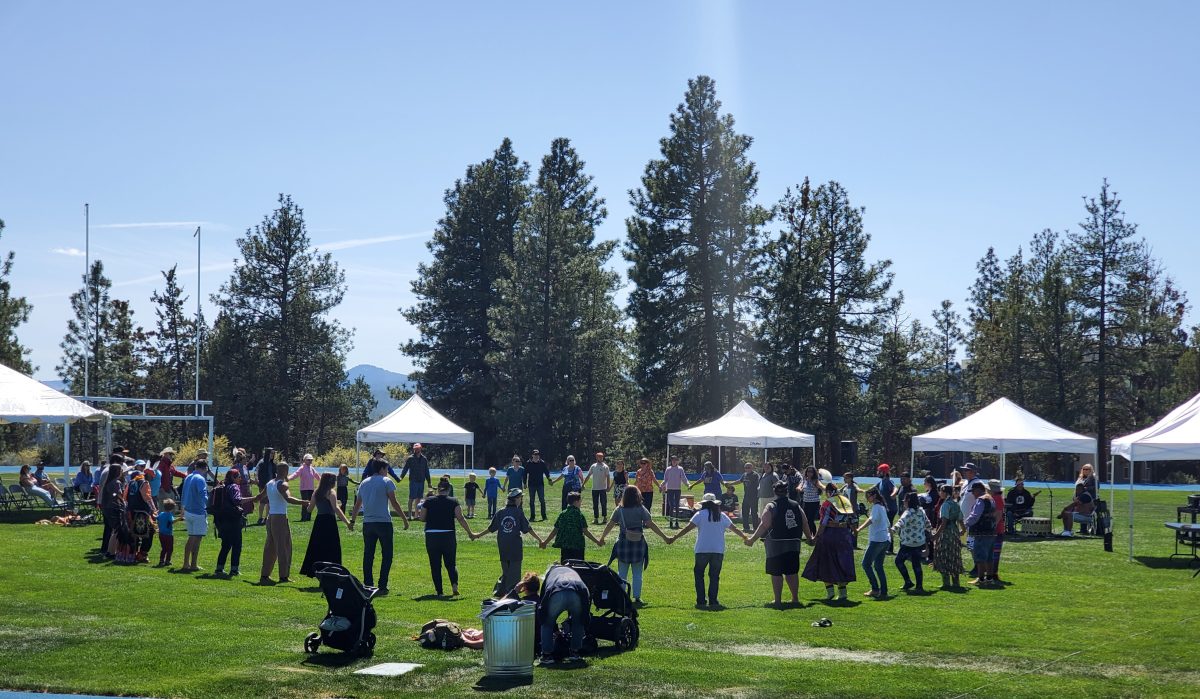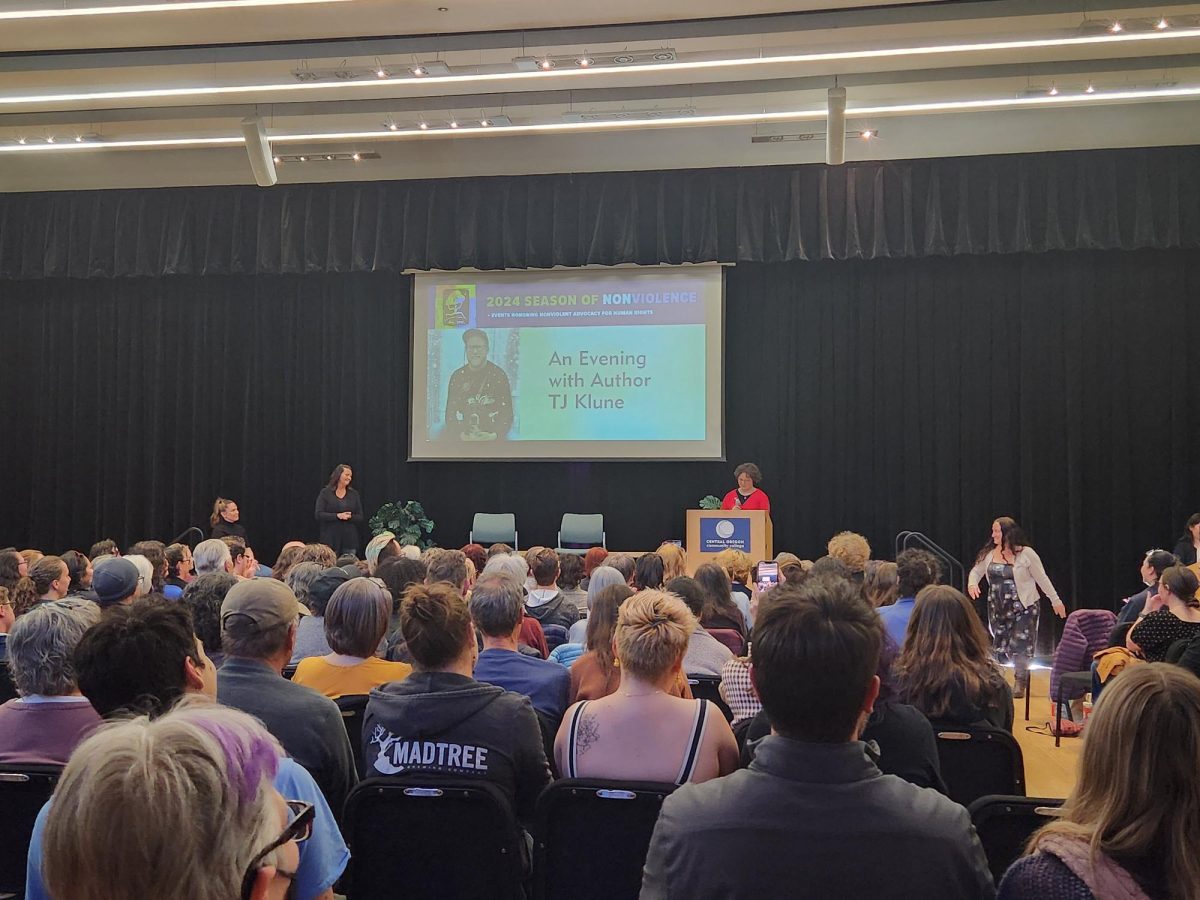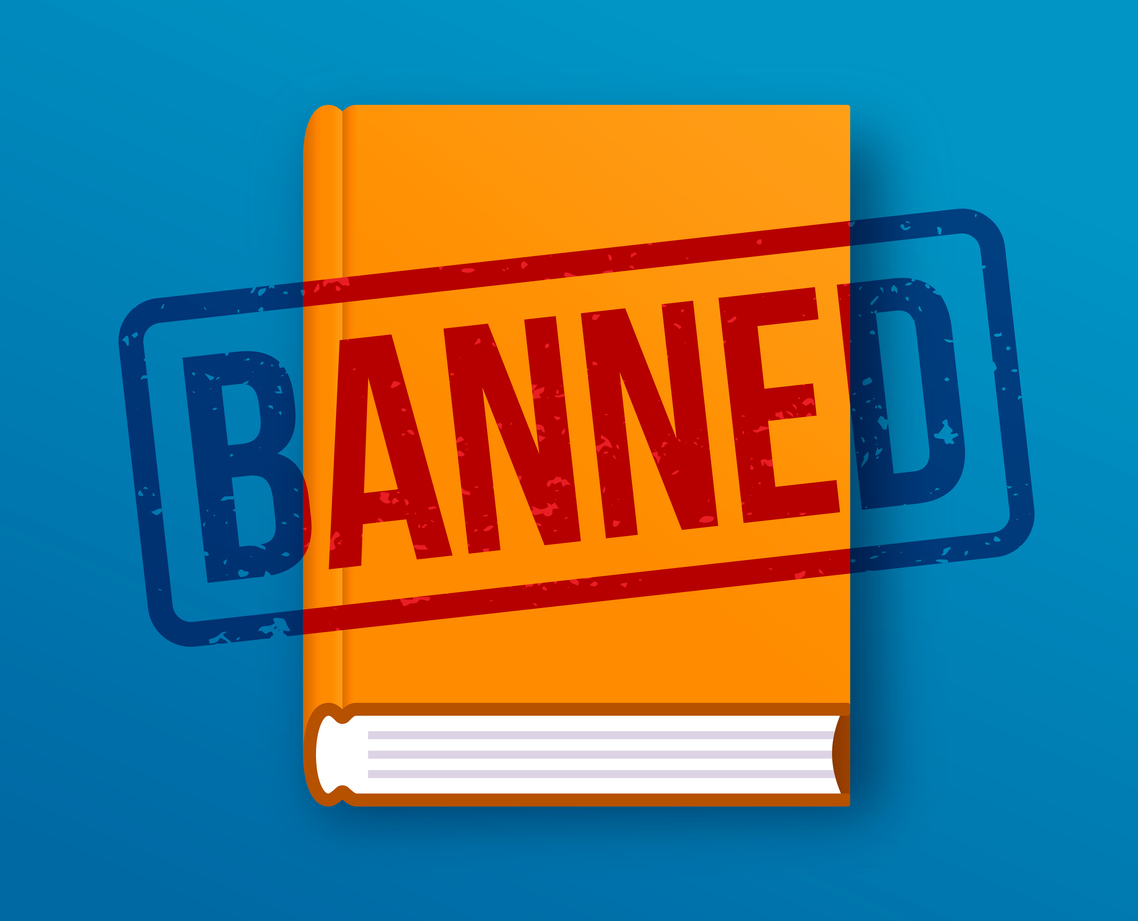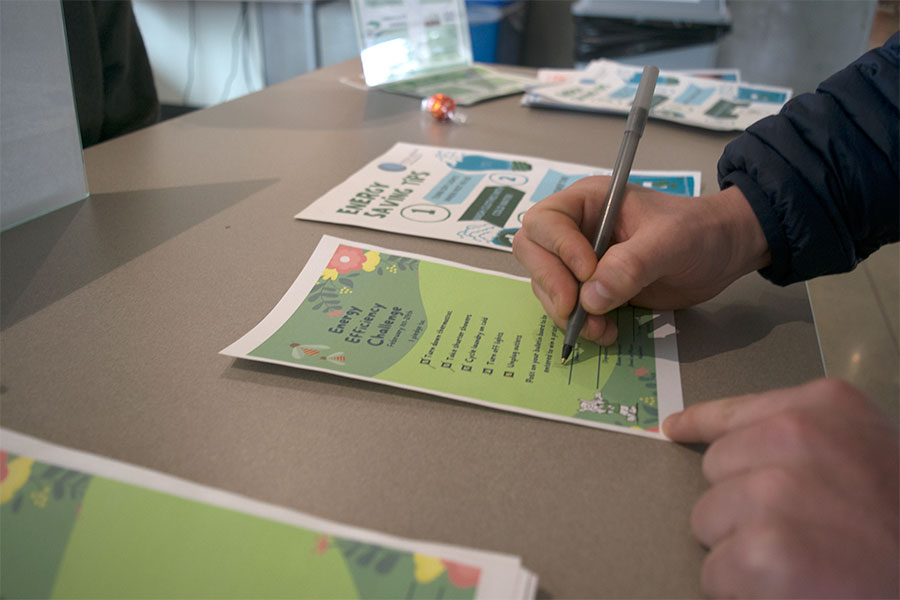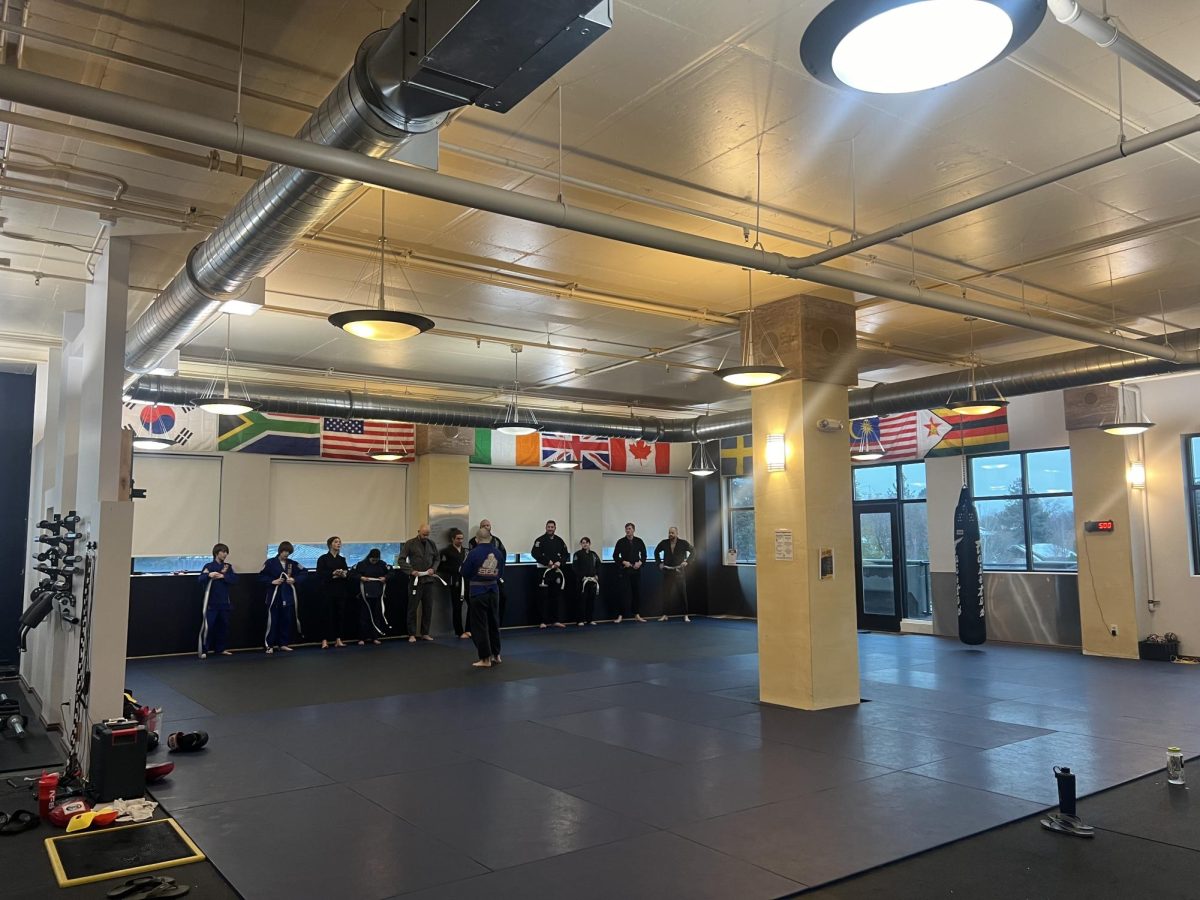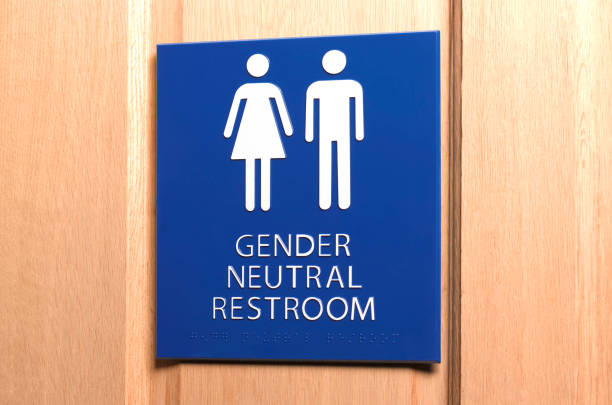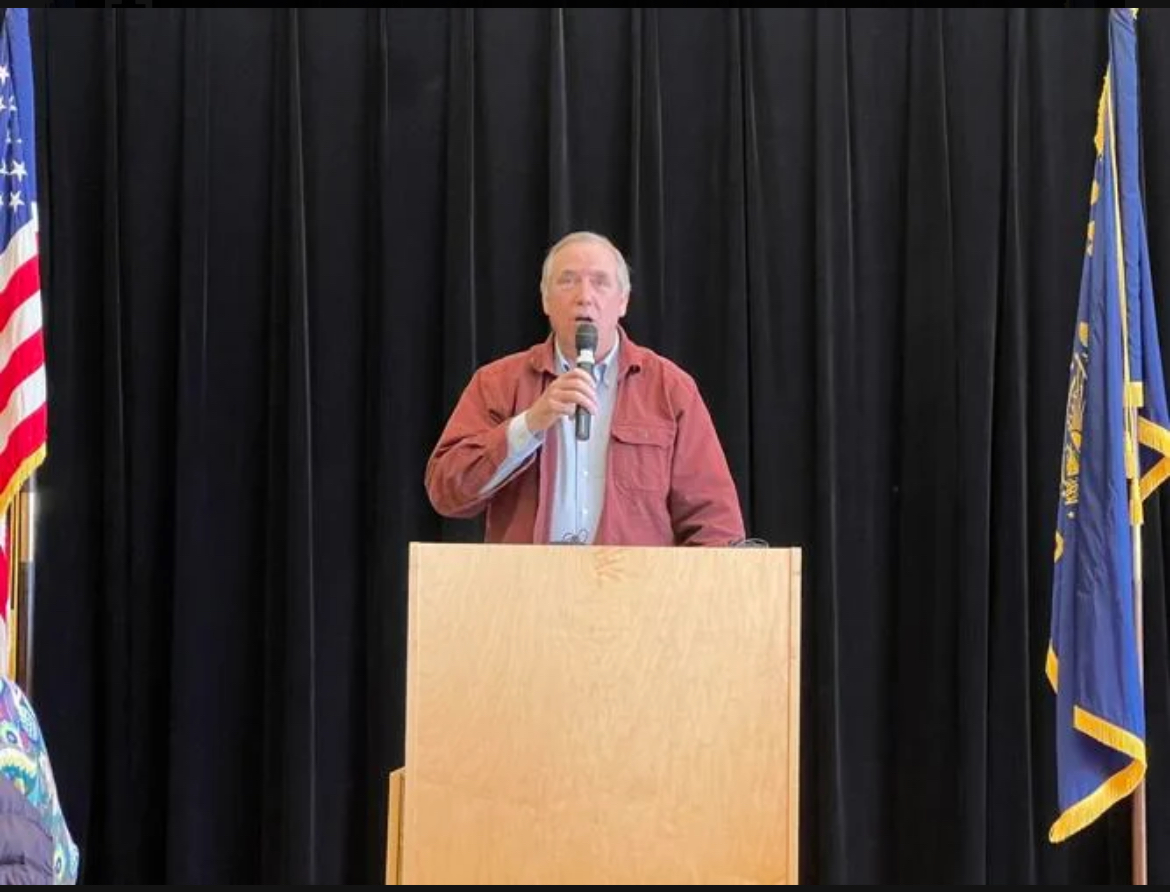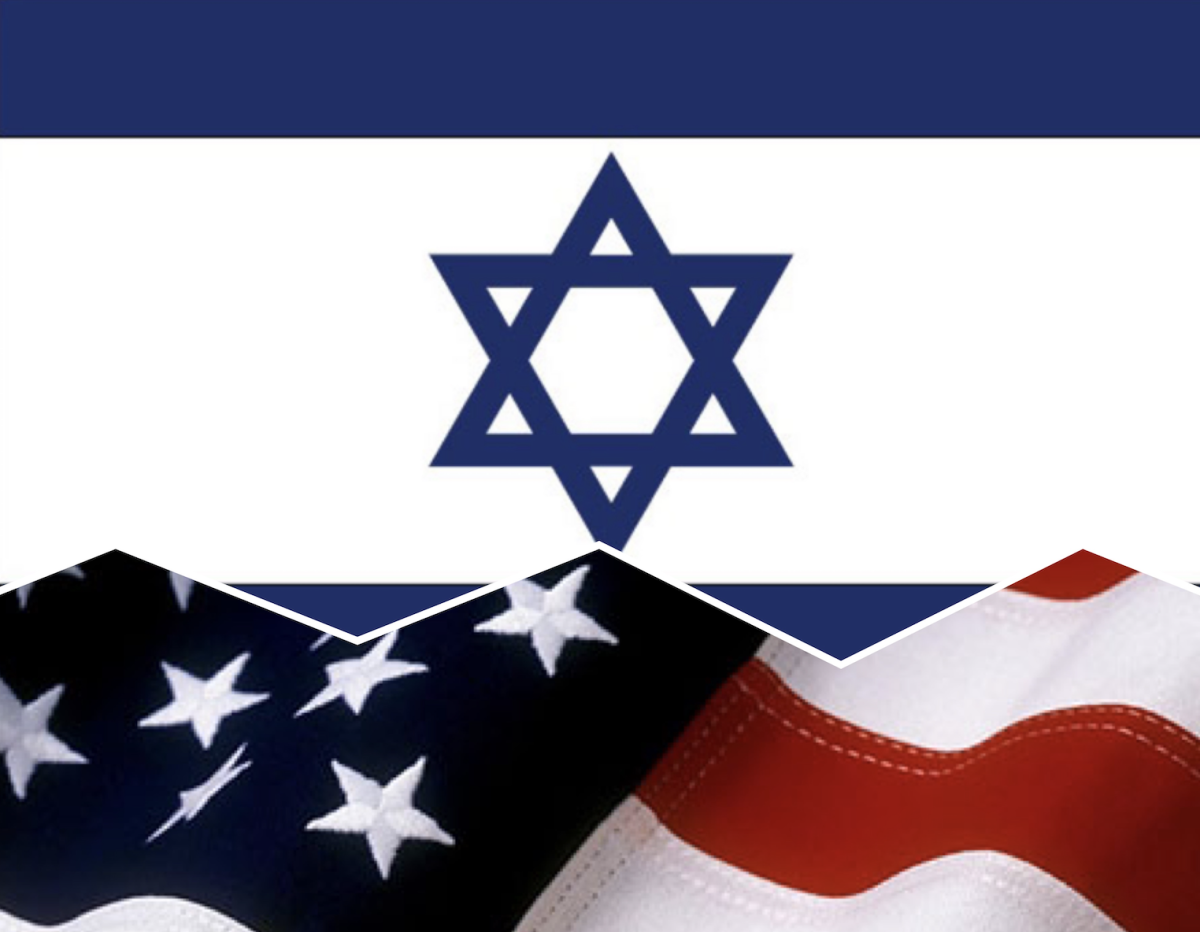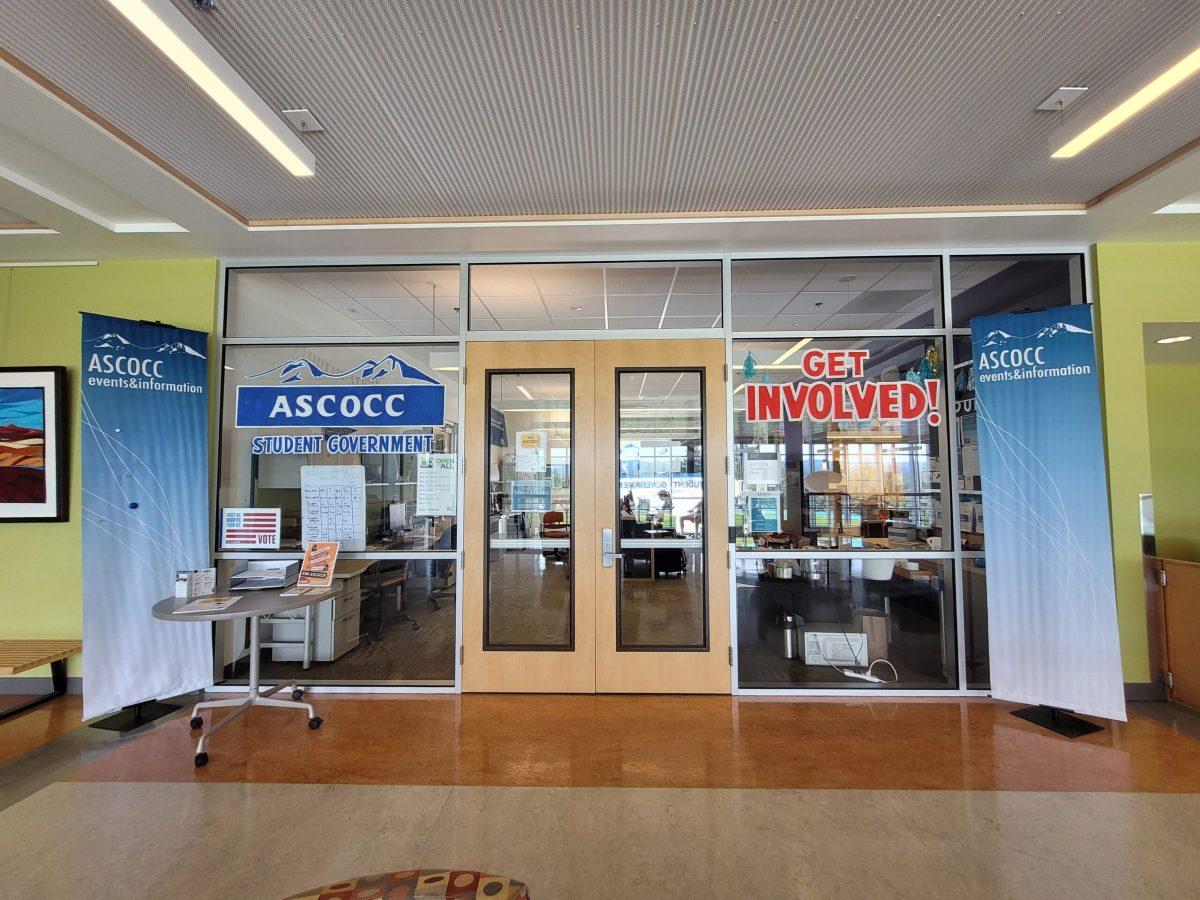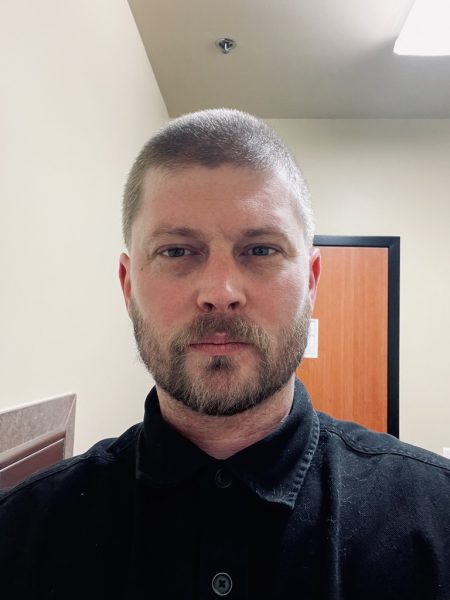Over 75 Central Oregon Community College students, faculty and community members gathered Wednesday, Nov. 15, in Willie Hall, as Professor Mira Sucharov of Carleton University gave a lecture on the Israeli-Palestinian conflict, in a free event hosted by the college’s History department.
The webinar, which featured the political science professor, author and TV commentator out of Canada, attracted a full crowd that listened as she gave a contextualized history of the conflict being watched around the world.
A history that focused on both sides of the battle, the struggles that are being faced in the Middle East and the paths that have led them to where they are today.
Audience members were then allowed to ask questions, with priority going to students first.
Organized by the college’s Assistant Professor of History, Jessica Hammerman, the lecture was meant to give students a baseline understanding of the region, and to feel better prepared and capable when disseminating information as they continue to learn about the evolving subject.
“You can see how desperate people are for real information from a smart source,” she said, and acknowledged the struggle that students can face when having to sift through the emotion, opinion and “hot takes on TikTok,” that surround the conversation.
“We all are ignorant. And the thing is that I felt very… confused,” she said. “And I have a somewhat similar background to the professor but wasn’t as saturated in Israel, but I did learn that history about the War of Independence, and this more glamorous version, that you know, kind of papered over the Nakba experience,” she added, and continued that she herself didn’t know the complete relationship between Hamas and the Palestinian people either.
Enter Sucharov, who specializes in Israeli-Palestinian relations, whom Hammerman has known for years and believes is a trustworthy source that can give us the right “story.”
“I think that she could help educate all of us and help clarify,” Hammerman said; with a balanced approach and without telling anyone what to think.
For the most part, Sucharov did just that.
Starting in the late 1880s and building to present day, she gave an expedited lesson on the back-and-forth injustices that have been committed by both the Israelis and the Palestinians, doing her best to fit as many facts as she could into a relatively small amount of time, especially for a subject as broad and complex as this.
For every fact about the Israeli struggle, there was acknowledgment for the Palestinian plight. The “push and pull factors,” as she called them.
She walked the audience through British occupied Palestine, the Holocaust, the Pre-State Zionist forces that pushed out Palestinians, the Balfour Declaration, the first Arab-Israeli War and so much more. All the while, being clear that she advocates for a ceasefire and protection for all civilians, Israeli and Palestinian alike.
At one point she stopped to jokingly take a breath, after quickly discussing decades worth of information in a short span of time, earning a laugh from the audience.
“It was a lot compact in an hour and a half. There was stuff that seemed like it went in one ear and out the other,” said Fabian Ruiz, a student of Professor Hammerman’s who attended the event for a graded history assignment. Though he thought it was a fair conversation, it was a short one.
“A lot of history in an hour,” he added.
While Sucharov did well to give a balanced telling of historical events, there were some in the audience who still felt a tinge of bias. But which way that veered depended on who you asked. To some it focused too heavily on the Palestinian gaze; to others, it skewed as pro-Israel.
Serena Zohbe Garcia, another COCC student who attended the event, said Sucharov “mostly gave balance,” but thought there was “more emotion towards Israel.”
Zohbe Garcia, a Lebanese American with familial ties to Palestinians in Gaza, felt that some of the rhetoric used when describing certain events, and the inclusion of personal stories of family and friends in Israel, interjected by Sucharov, were unfair depictions to the Palestinian experience.
When it came time to discuss the events of Oct. 7, Sucharov started by saying, “I’ll just put myself into the narrative, just to make it feel a bit more real for you.” Then proceeded to paint a picture of her “kibbutz family” and their traumatizing experience that she described as having been done “in cold blood.”
She explained how her extended family had gone into their “secure room” during the attack, something they are unfortunately accustomed to doing in their daily lives. As they were coming out, they noticed Hamas militants roaming the street and were violently harassed, being shot at in their home and having windows shot out in their car, eventually seeing the men dead across the street.
A street Sucharov mentions she had been down many times before.
She then spoke of a friend she was grieving; one who had sadly been taken by Hamas and whose remains had been found just two days prior.
“That really wasn’t needed,” Zohbe Garcia said. “She could’ve talked more on just the overall situation.”
In contrast, no instances of Palestinian life under Israeli governmental control had been elaborated on, or any mention of the 10,000 Palestinian civilians that have been killed since Israel’s retaliation; 4,000 of which were children.
This number has grown since the event was held, and is now believed to be over 14,000 civilians, with 6,000 of them being children.
Sucharov described Israel’s retaliation as “ferocious force,” but did not mention any specific story or instance in which to explain the civilian experience in Gaza in the same way she did for those she knew.
“I think COCC did the best job they could with Mira,” Zohbe Garcia added, and that she also felt Sucharov’s distinction between Hamas and the Palestinians was “very brief,” and that she could have shown more compassion for those lost in Gaza, as she did her friends.
For others though, Sucharov was unbalanced and told a history that painted Israel in a bad light.
“I don’t think she really focused well here in this talk,” said Lior Kogot, a community member, who along with his wife Revital Kogot, both from Israel, joined the lecture via Zoom.
“The conversation was focused more on the Israeli side and less on the Palestinian side, telling more of the story of Israel,” he said.
However, not in the way they felt was deserved.
“As an Israeli, in my ears, she sounded like the far left,” the latter Kogot added, “by missing or not bringing to the table the really rounded information,” she feels is needed when fully examining the conflict.
“The history here is very important,” said the former, who didn’t “think that the people that were there really got the history to start with.”
They felt more should have been said about Jews being in the area for thousands of years, the extreme nature of Hamas as a terrorist organization and the ceasefire that the region was under prior to Oct. 7. Believing these to be key elements missing from the lecture.
While this missing information is what led to their frustrated feelings, they both acknowledged the time constraint Sucharov was under and wished there had been more time to ask questions and have a bigger conversation.
“If I put myself in the mind of a student, that went well,” she said. “I know for a fact that she did not mention some very, very, again, facts, that she should have mentioned,” Kogot added.
Mrs. Kogot feels having these pieces of information are vital, especially for young people that may not yet understand what they are saying.
One thing they did understand is Sucharov’s message on values.
Asked by Ruiz, via Professor Hammerman, about how to approach this topic with others without being offensive, Sucharov said, “it’s very important to talk in terms of values,” and encouraged people to share their values, and ask others to share theirs in return, as a means to find an understanding or common ground (or not) with those you may have differing opinions.
“Once you articulate your values you might find that you’re able to get a lot of purchase from the person you’re talking to or the person you’re debating with,” she said, because if you do find those similarities you can ask, “where do we go from here?”
For Sucharov, those values included, “protection of human life, protection of human dignity, protection of individual and collective safety and protection of human rights and civil rights.”
Ruiz said he liked this approach because, “it’s not supporting one side, it’s supporting the values you think are right.”
If you are still finding your footing on this complicated topic and would like to learn more, Sucharov and her colleague Omar Dajani have compiled a list of reading material to help you stay informed. That list can be found here.




